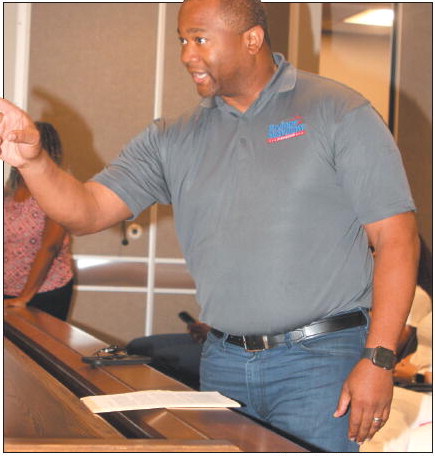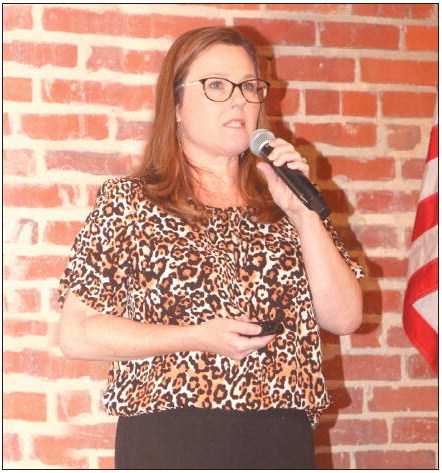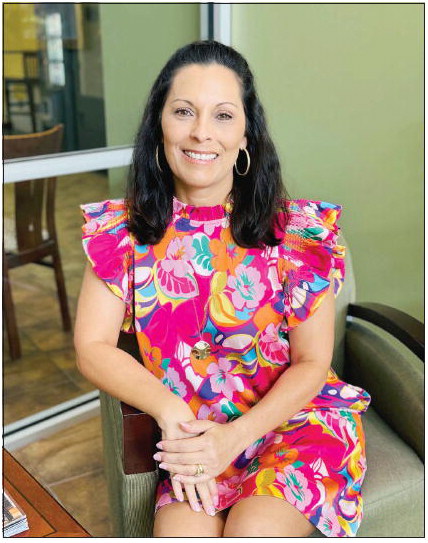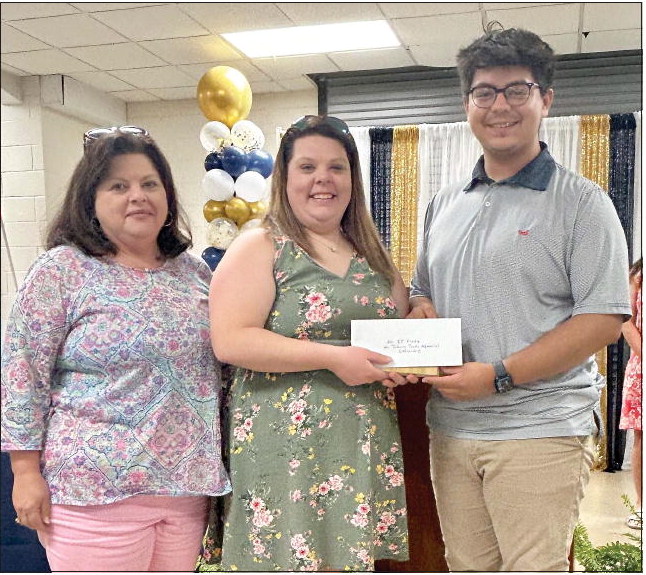continued from page fullback, was ….
continued from page
fullback, was known as Mr. Inside and halfback Glenn Davis was “Mr. Outside.” Dan Jenkins, Hall of Fame writer and historian once wrote a story about the Heisman: “Who won it and who should have won it.” He said Trippi should have won it in 1946.
When I met Sinkwich after seeing his Heisman trophy, in isolation, in his apartment, I told him about my visit to his guest quarters and offered that if I had won the Heisman trophy I would have it on a pedestal at the entrance to my house.
He smiled and said, “Well, you know, it really is not mine. It belongs to the University of Georgia. In fact, I have been planning to give it to the school.” By that time, I had joined the Bulldog athletic staff and went to see athletic director, Joel Eaves. I told him of Sinkwich’s plan which I also shared with Magill, who thought it was a great idea.
I called Sinkwich and told him that if he was serious that we would make arrangements for a ceremony for either pregame or halftime of a home game.
Frank, in my view, is the most modest superstar there has ever been. He said, “Do I have to be there?” I was flabbergasted and said, “If you are going to give us the trophy, it would be nice to have you in the photos.” The magnanimity of his statement was not lost on Georgia partisans, but it would also resonate with others with the passing of time.
In New York for the ceremony when Herschel Walker won the prestigious award in 1982, a Heisman official told me that the Frank Sinkwich story inspired the Heisman hierarchy to begin the tradition of awarding two trophies each year— one to a player and one to his school.
Sinkwich was a remarkably modest man who was a loyal and diffident person who was also kind and generous. For the longest time, he did not buy season tickets, owing to travel and other commitments on weekends. His freshman coach at Georgia, Howell Hollis, later became business manager. Hollis was the overall supervisor of tickets, and he would take care of his former player when he needed tickets.
This meant that Sinkwich had not become an established season ticket buyer. He was not a contributor. When I became the business manager, Frank told me about his ticket request routine with Hollis.
The success of Vince Dooley’s football teams caused ticket demand to soar upwards dramatically. Frank came to me and asked what he needed to do to purchase tickets. We worked out a plan with which he was compatible although the best seats available were down low in the South stands.
“That is okay,” he smiled. “I actually prefer to sit in lower seats.” I was worried about cynics saying, “This is the way Georgia treats its Heisman trophy winner.”
Sinkwich appreciated Georgia’s upgrade in winning on Saturday and became a loyal supporter of Dooley ball which was, shall we say, a different brand from what he knew under pass master Wallace Butts, which had a lot to do with his winning the coveted Heisman trophy. There is no doubt that his having played much of the 1941 season with a broken jaw enabled him to score a lot of votes with regional and national voters.
When the campaign began for developing the Butts-Mehre Building, Sinkwich became a substantial donor. He made one of the first major gifts to the campaign.
Frank Sinkwich appreciated his Georgia education and was happy to participate in a campaign that would honor his former coach, someone he always said, “made a man out of a punk from Youngstown, Ohio.” The modest superstar graphically underscored loyalty and wanted no headline for it.






